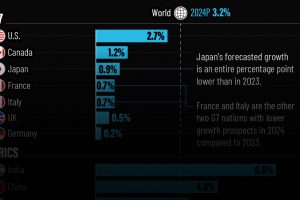Investor Confidence in Cloud Storage is Sky High
For technology investors in 2015, cloud was king.
Money continued to flow to the cloud storage sector, where a total of 1,800 transactions were made in 2015 for a total value of more than $100 billion. The largest of these deals was between two storage giants, with SanDisk getting gobbled up by competitor Western Digital for a $19 billion price tag.
Cloud storage, which allows users and businesses to store vast amounts of data remotely, has been in heavy demand lately. With approximately 2.5 quintillion bytes of data created every day and more people seeking to stream movies, video games, and music from the cloud on a regular basis, there is no other option but to grow the industry at a breakneck pace.
Cloud Nine
Why is the cloud another level above many other tech sub-sectors competing for investment?
The answer is simple.
Cloud is already proven to be effective, and it can scale. While the true viability of trends such as the internet of things (IoT), robotics, VR/AR, and artificial intelligence are still under scrutiny, cloud storage is being used effectively by millions every day. It’s why Amazon crushed its most recent earnings report with $2.57 billion in revenue (a 64% increase) just coming from its Amazon Web Services cloud play. It’s also why, according to a Deloitte survey, venture capitalists are most confident investing in the cloud sector over many other technologies.
It’s no surprise that quality startups focused on the cloud have had no problems raising money.
Enterprise SaaS startup Slack, which raised $160 million in 2015 and another $200 million in 2016, was selected as the “Company of the Year” according to Inc. Magazine. It has been one of the fastest growing startups ever, reaching a $1 billion valuation even before its product turned eight months old.
GitHub, a repository for software code, had the biggest raise for cloud-focused startups last year. The seven year-old company raked in $250 million at a $2 billion valuation to expand internationally and to invest in new products.
A Cloudy Horizon?
Despite a projection of $54.9 billion in annual spend going to cloud infrastructure by 2019, one major concern still remains about the future of cloud computing.
The cloud has vast amounts of sensitive data stored in a single place, making cloud providers a particularly attractive target for hackers. With the average cybercrime in the United States costing a company $15.4 million, organizations are actively seeking to shield their digital assets from the millions of cyber attacks launched each year. Cybersecurity is becoming a mission critical feature in both enterprise and government budgets moving forward.
If enterprise customers lose faith in the cloud’s ability to keep data secure, there will be a ripple effect on investment and industry growth. For further reading and to get an idea of what these companies are facing, here’s a recent list of the “Treacherous 12” security threats that organizations face when using cloud services.






